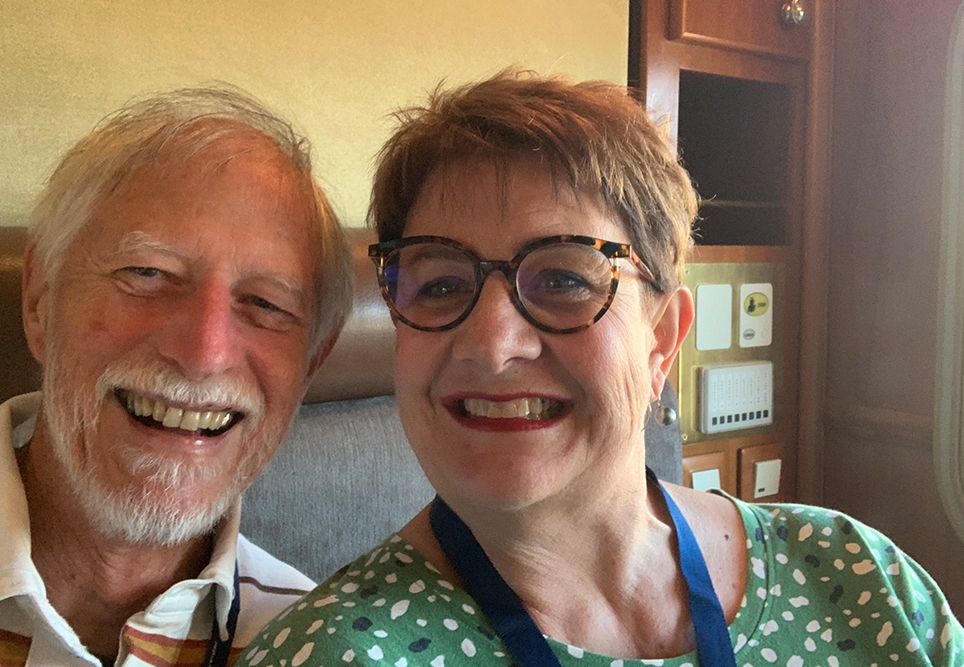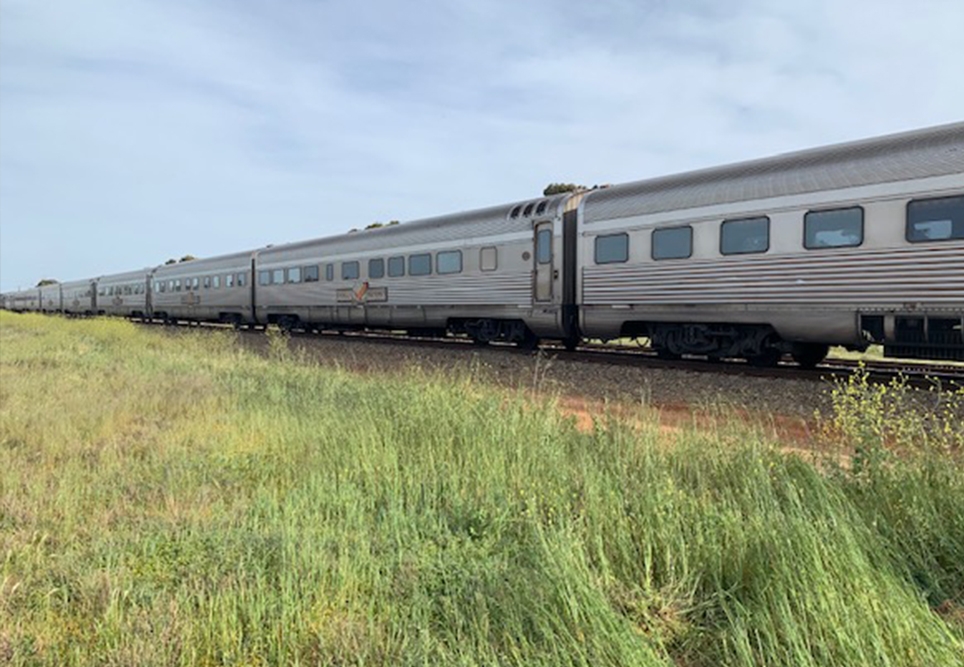This site may not work properly using older versions of Edge and Internet Explorer. You should upgrade your browser to the latest Chrome, Firefox, Edge, Safari, or any other modern browser of your choice. Click here for more information.
Your Stories
This is where we tell your stories, cover topical issues and promote meaningful initiatives.
Ann's train journey takes an unexpected turn
CRANAplus Board member and RN Ann Aitken recently found herself tending to a person with chest pains during a recreational train journey. Here she tells her tale – and pays thanks to having recently undertaken the CRANAplus Advanced Life Support course.
Ann Aitken and her husband were settling into their carriage when she was approached by a train steward. Their plans of how they would spend the time celebrating their wedding anniversary on a leisurely cross-country train journey were about to change dramatically.
For the next five hours or so, Ann would be tending to a person who was showing symptoms of an impending heart attack.
“I finished the Advanced Life Support (ALS) on the Monday,” Ann recalls. “On the Wednesday, my husband and I boarded the train, excited about the trip. On the Friday, I was in a carriage with rudimentary medical equipment putting all I’d learned on that course into action.
“One of the stewards had heard that I was a nurse and approached me. There was a person who wasn’t feeling great, they told me. They had chest pains, and would I have a look at them?”
Ann soon took control of the situation with the support of the CPR and First-Aid trained staff. The train halted in an old railway settlement with a handful of residents, while Ann liaised by phone with the retrieval service, two hours away by plane.
Ann had at her disposal a medical chest of the sort found on remote sheep and cattle stations.
“This wasn’t your normal clinic situation. I wasn’t able to cannulate the patient. I was working with a very basic blood pressure machine – like the one you might buy at the chemist for home monitoring.”
“But I could use the drugs in that medical chest, progressing the use as the person’s condition progressed. I could give them morphine for the pain and there were also a couple of drugs, in patch and spray form, for heart conditions.
“My job was to keep the patient calm and as pain-free as possible until additional support arrived.”
Having just done the ALS course was a huge bonus, says Ann.
“I don’t generally work in cardiac situations and I’ve never worked in a heart ward,” she says.
“The main benefit was that it gave me structure. I had a structure to be able to continue to assess and keep them calm, using the information I was gathering to decide on the next steps, using critical thinking to make those decisions.
“Doing that training refreshed my knowledge and reassured me I did have the skills to find my way through.”
And what happened to the fellow traveller Ann cared for? The retrieval plane landed and a resident picked up the doctor from the airstrip, took them to the train, and then transported the doctor and patient to the plane.
The patient did have a heart attack in a regional hospital and was then transported to a major city where a stent was inserted.
Ann and her husband were back in Atherton a couple of days later, and the patient was ultimately able to resume their planned holiday.
“They Googled me to get my contact details – and I received a beautiful bunch of flowers in thanks,” Ann says with a smile.
Find out more about the CRANAplus Advanced Life Support course.

